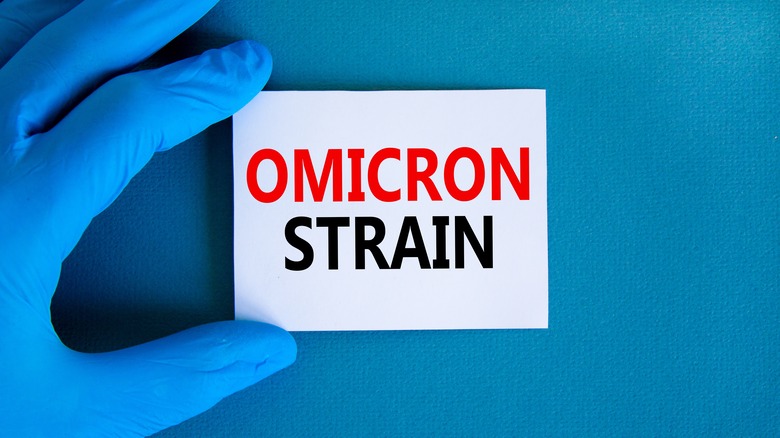Here's When Scientists Will Know The Answers To Vital Questions About The Omicron Variant
On November 26, 2021, the World Health Organization (WHO) named the omicron variant of coronavirus a "variant of concern." The B.1.1.529 variant was first reported in South Africa two days prior. Previously, the delta variant was the biggest concern. Dr. Anthony Fauci, the chief medical advisor to the president, is reminding Americans to get vaccinated against COVID-19. Although the omicron variant is potentially less severe than delta, it is too soon to tell, according to CNN (via Twitter).
Tulia de Oliveira, the director of the Centre for Epidemic Response & innovation in South Africa, tweeted, "This new variant, B.1.1.529 seems to spread very quick! In less than 2 weeks [it] now dominates all infections following a devastating Delta wave in South Africa." The omicron variant has multiple spike protein mutations, which is concerning. This means it "may be able to evade some of the immune protection afforded by vaccines, many of which are based on the original spike protein, and past infections," according to Medical News Today.
It will take weeks to know more
It will take at least two weeks before Americans know more about the omicron variant of COVID-19, as scientists need time to study the variant (via CNN). According to the World Health Organization, this variant could have an increased risk of infection than other variants of concern. The number of cases of omicron infections is rising in South Africa, where the variant was first detected, and it seems to be spreading quicker than other variants. Studies are currently being conducted to learn more. Experts will attempt to understand its transmissibility and severity.
Since experts don't know much yet, everyone needs to rely on the practices that have already worked to slow the spread of infections. The Centers for Disease Control and Prevention recommends wearing masks in public places indoors, hand washing frequently, and social distancing. You should also get fully vaccinated against COVID-19. If you are eligible for a booster dose, you should get that too.


